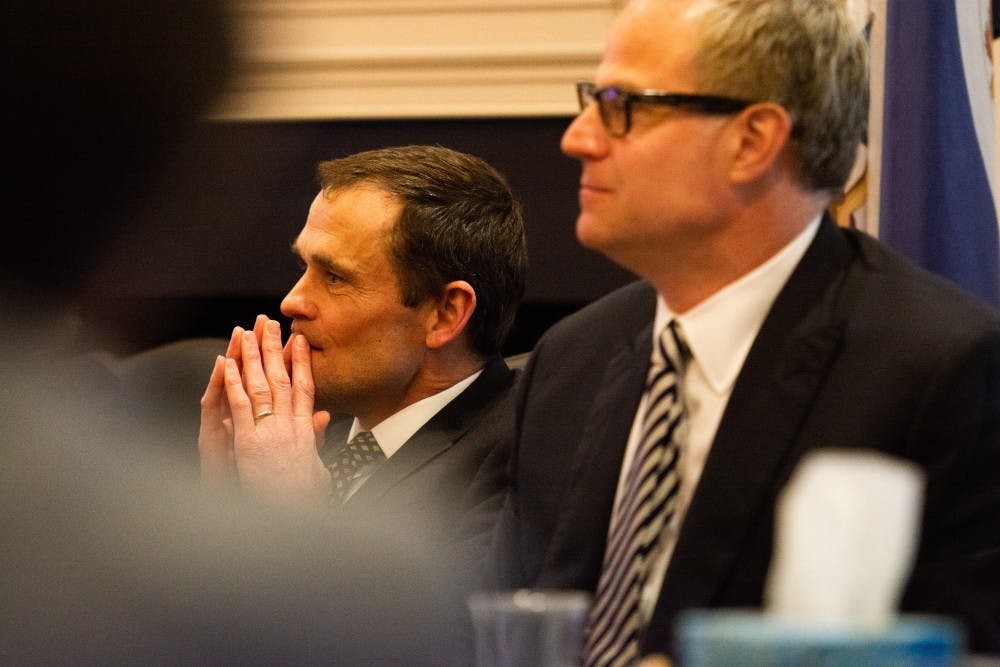The University Board of Visitors met Friday morning to approve proposed increases in third- and fourth-year student tuition starting in fall 2021.
Drawing on their vision for the College of Arts and Sciences outlined in a committee report that includes educating “the next generation of citizen leaders” and recruiting and retaining “the world’s leading faculty,” the Board discussed generating six million dollars through student tuition increases.
Third-year College students will be subject to a rate that is $2,700 higher than the University’s base tuition rate in 2021. In-state students in the College are currently set to pay $14,094 for tuition in the 2019-20 school year. In 2022 and every year thereafter, both third- and fourth-years will pay the extra fee, generating $12 million annually for the University.
The University’s Budget Office projects that upper division tuition rates for in-state College students will be $14,094 for 2019-20, $14,518 in 2020-21, $17,654 for 2021-22 and $18,184 for 2022-23, assuming a 21.6 percent increase in base and fees for third- and fourth-year students after the 2020-21 academic year.

Graphic by Jacob Deane
The University has increased its tuition either at the rate of inflation or below it for four consecutive years until the 2019-20 school year, when the tuition rate will increase by 2.9 percent for in-state students.
The increases will apply equally to both in- and out-of-state students, University Deputy Spokesperson Wes Hester said in an email to The Cavalier Daily.
“I'm not a fan of raising tuition — I have kids in college — so I get that raising tuition is not the first thing you should do,” University President Jim Ryan said in an interview with The Cavalier Daily. “But you know, the College needs more resources to improve student-faculty ratios for every hundred students.”
The committee report states that the income generated from these increases will fund less than 20 percent of a multi-year plan to carry out the College’s vision. The $12 million generated by tuition increases will fund an “enhancement of the quality of the undergraduate experience.”
Other key components of this new vision include a rise from 28th to 20th in terms of faculty salary for the University, providing Pan-University Excellence through facilities, student services, research and academic support and IT security among other targets.
The remaining 80 percent of funding needed to accomplish these goals will be sourced from philanthropy and reallocation of cost savings.
Noted in the committee report was that AccessUVa will still be fully applicable to all students, ensuring that “28 percent of 3rd and 4th year College students will be held harmless, through additional grants.”
AccessUVa is a financial aid program that began in 2004 that seeks to increase socioeconomic diversity at the University by lowering or fully covering the cost of attendance for students whose parental income is more than two times less than the federal poverty line.
Ryan addressed student tuition in his inaugural address when he announced that students from Virginia families that earn less than $80,000 annually would be able to attend the University free of tuition, and further, those that earned less than $30,000 in yearly income would be eligible for free room and board on top of that.
“If the tuition differential is approved, students whose families earn less than $80,000 will still receive grants that are equal to the tuition even including the increase,” Ryan said. “Students whose families earn less than $30,000 will still receive grants that are equal to tuition.”
These financial aid packages will include work-study and need-based loans in addition to grants and scholarships, and will apply to all current University students with an emphasis on the incoming Class of 2023 during their third and fourth years.







